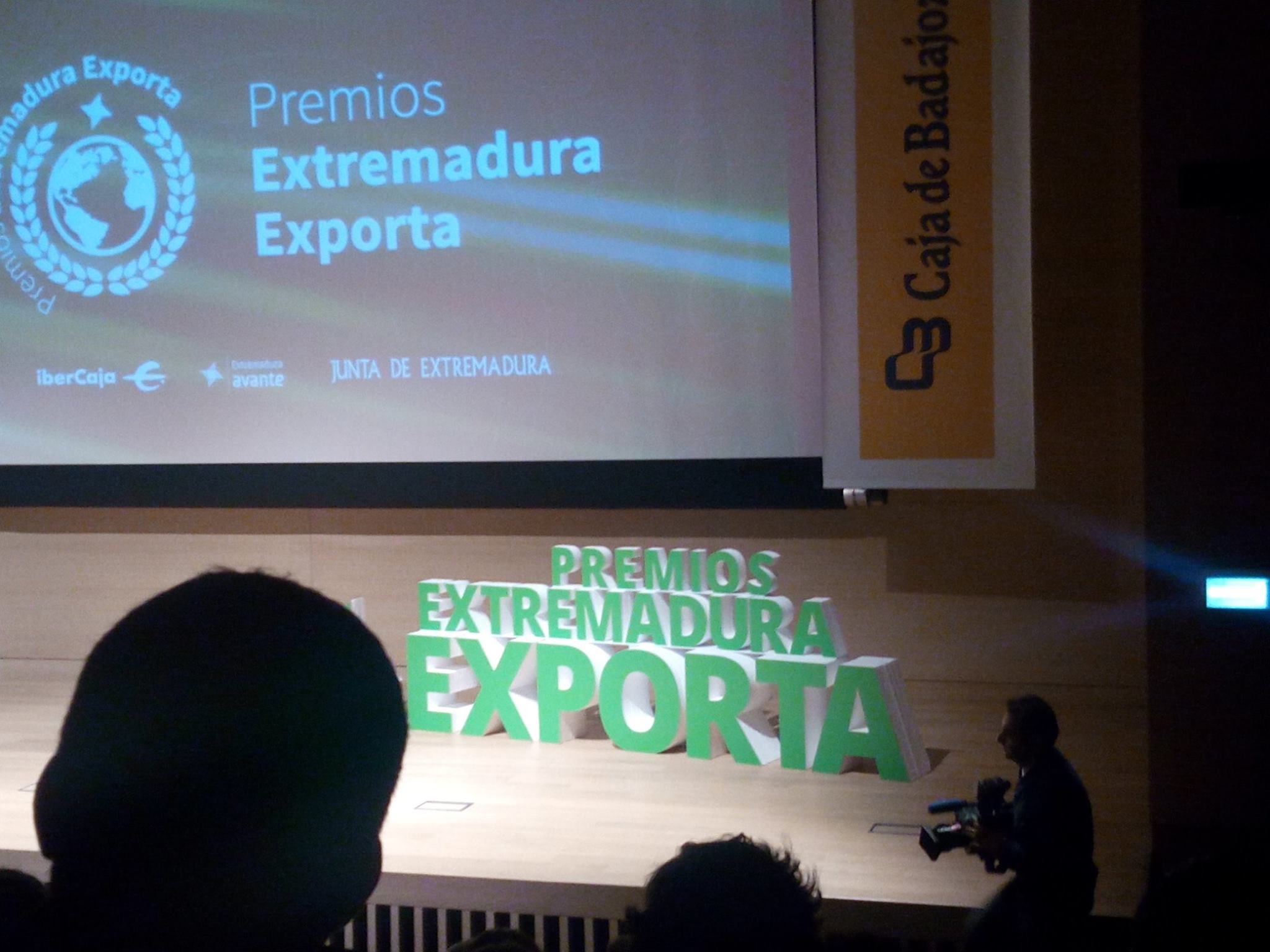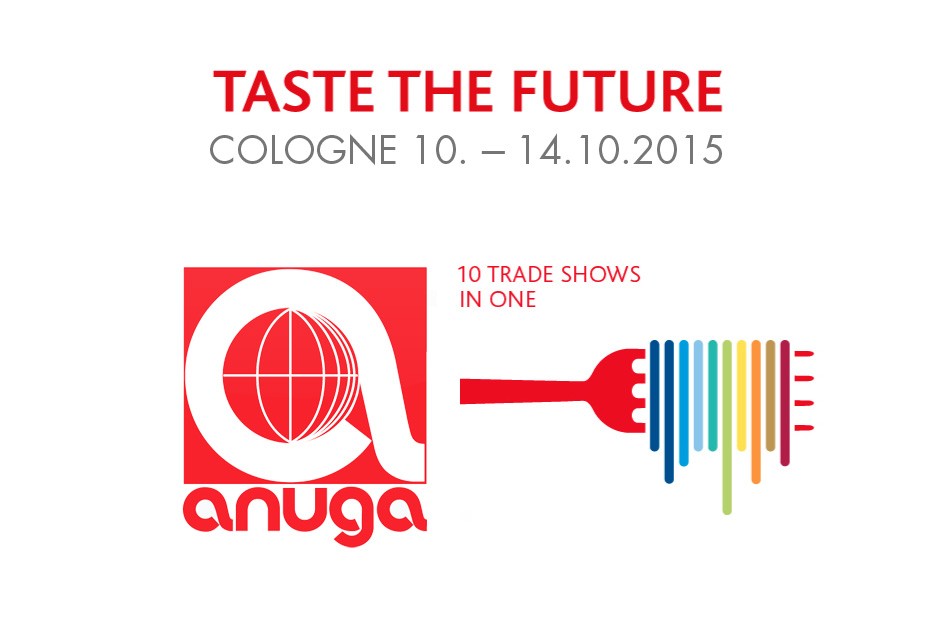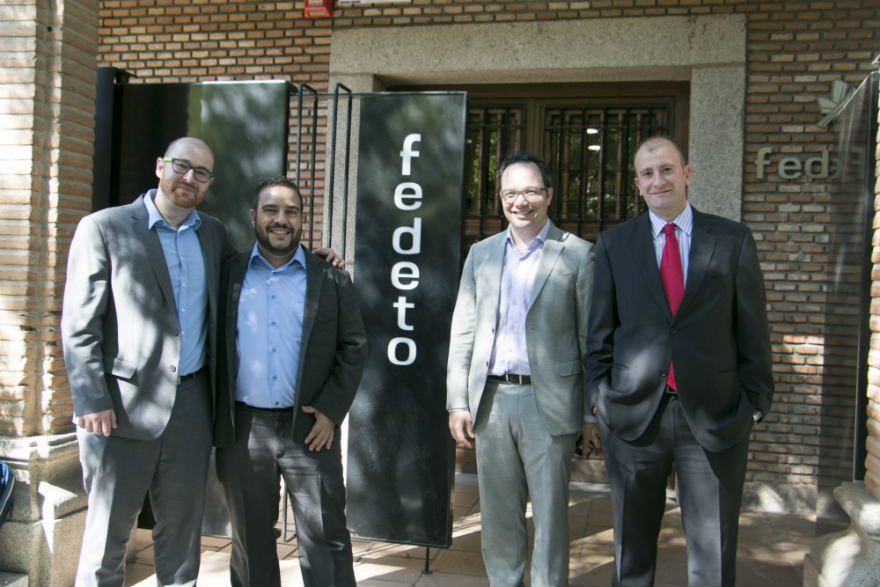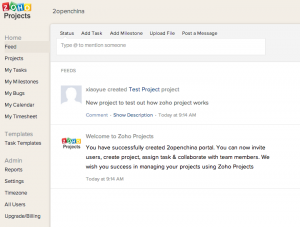2Open at the Avante Awards
This last February 2Open was at the Extremadura’s Avante Awards Ceremony that took place in Badajoz (Extremadura, Spain). This event is held every year since 2013 and it recognizes and commemorates Spanish companies from that region who have had success in international markets. Not only do they award companies who have had an outstanding performance abroad, but also encourages people who show talent, effort, creativity and innovation to position themselves at an international level.
The event aims to incentivize Spanish companies from the region of Extremadura to export value outside of the country, companies who are featured in this event are companies who have had a struggles, obstacles and cultural barriers and have managed to overcome them. 2Open is a proud contender for this award in 4 of its 5 categories which are the following:
- Extremadura Exporta “Trayectoria”, This award focuses on the trajectory of the company. The obstacles and difficulties it had to overcome to gain its position in the foreign market in which it operates. Mostly, it rewards effort, persistency and success cases of a company’s path.
- Extremadura Exporta “Innovación”, This award is for companies who have innovated in someway. This could be by implementing new processes and/or techniques in its exported products or services as well as ways to penetrate a foreign market, differentiate themselves and gain competitive advantage.
- Extremadura Exporta “Joven” , This award is for the young entrepreneur or business man/woman who has managed to be successful at an international level.
- Extremadura Exporta “Agroalimentario”, this category is for the companies who have successfully exported food related products from the region of Extremadura to other countries.
- Extremadura Exporta “Conocimiento”, this award is given to the company who has had success in other markets by transferring knowledge and expertise. This is a new category for this third edition of the Extremadura Avante Awards.
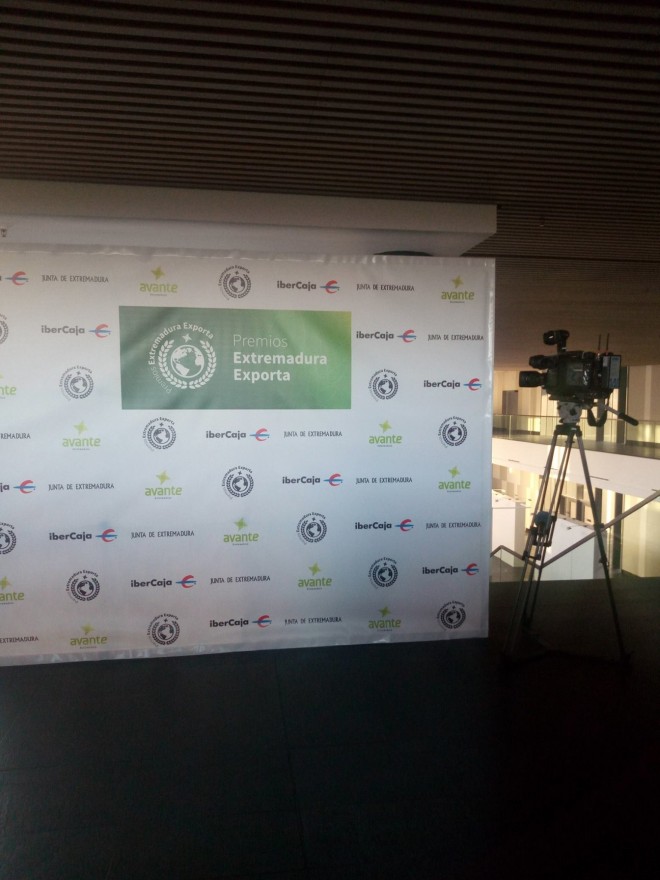
Exporting is an unknown adventure for most companies but day by day, these companies overcome fears and obstacles and Extremadura Avante thinks that they should be awarded for that. We could not agree more, it is not an easy task, but companies like 2Open will encourage other to reach that so desired international level.
We would like to thank Extremadura Avante for giving 2Open a space in its event and for helping other companies to go abroad.
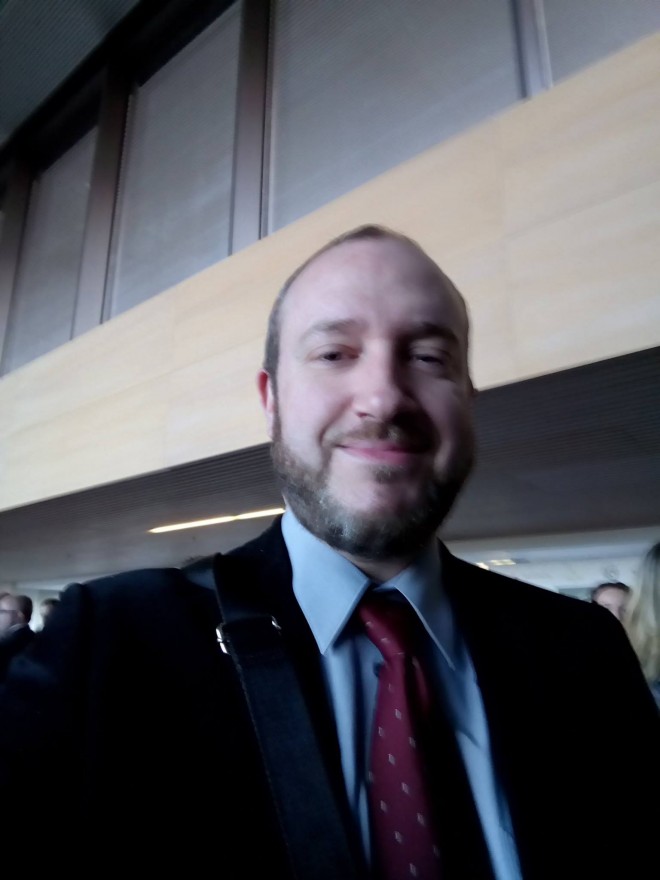
2Open on Spanish radio: Business in China?
Recently, we were invited to a local Spanish radio program called “Onda Cero” in Cáceres City. Vicente Pozas, the host of the show, asked some interesting questions to our colleague David González regarding Digital Business in China. For a lot of people in Europe, China is a far away land with a different culture, different people, and different ways to make business. People are getting interested in China, it has had a huge economical growth in the past few years and interest of foreigners has grown accordingly.
The talk mainly focused on China’s development in certain technological areas, the business opportunities it offers, and the considerations that have to be taken into account if one should intent to do business in China. David González talked about the differences in population of major cities in both countries and the way e-commerce in China has surpassed any other country in the world. He also stressed the way the Chinese middle-class people have gained more purchasing power and how all of this can be translated into a broader potential market for any business.

After throwing out some interesting figures about China, he talked about failure and success cases that foreign companies have had when trying to enter the Chinese market, the limitations and the room for mistakes that exists in the country, and the complexity of making business with a Chinese businessperson.
Although the talk focused mainly on China and the way they make business, David got the opportunity to talk about 2Open, our business values, and the way we carry out every project with passion and commitment. The complexity and the obstacles that a business in China could present and how a company like 2Open can make the whole process a lot simpler and successful.
Here is the audio of the interview with David González on the Spanish radio show “Onda Cero”, sadly the audio file is only available in Spanish, but if you have a particular interest on it please leave a comment and we will post an English translation of it.
This article was edited by Andres Arroyo Olson from 2Open.
2Open at Territorio Creativo: China Business Overview
On Friday the 5th of February Luis Salvador Galán, the CEO of 2Open, went to give a speech to the well-known Spanish marketing consulting agency called “Territorio Creativo” (https://www.territoriocreativo.es/en/). Territorio Creativo was founded back in 1997 and it has had a huge development ever since. In 2005 its blog (TCBlog) was brought to life which later became to be one of the most influential blogs in the field, this helped and boosted the company to the highest relevant positions in the area. As for 2009, the company decided to focus more on Social Media Marketing and nowadays they operate in many different locations around the globe and have more than 100 employees.
Every Friday they organize a meeting during a breakfast session in which an expert shares experiences, expertise and knowledge with all the company’s members, this is usually held in the Madrid and Barcelona offices. They call it TcDesayunos. Luis S. Galán decided to share his Chinese experiences in the Digital Field and commentated on his personal vision about China’s landscape. Although he could have spoken about the development and best practices of 2Open, he opted for another approach and instead took the opportunity to share business experiences and receive brilliant ideas and comments from the audience.

The talk focused mainly on creativity, differences in politics, and the development of China in certain digital areas. The relation and contrast between creativity and freedom were discussed as well as advantages and disadvantages between the Spanish political system and the Chinese one. The huge development of mobile use and e-commerce in China was also a topic of discussion, since it has had a considerable growth in the past few years. The aim of this talk was mainly to give the Spanish audience a grasp of what the Chinese business environment looks like and where it is heading so they could get an idea of the so called “Chinese dream”.
If you wish to have a look at the article of Territorio Creativo about the session, and if you speak Spanish, here is the link to it: https://www.territoriocreativo.es/etc/2016/02/china-emperadora-del-ecommerce.html
This article was edited by Andres Arroyo Olson from 2Open.
The commercialization of Wechat. User experience or profit?
January 11, 2016, Zhang Xiaolong, the man behind the curtain of the Wechat Empire, who had never given a public speech before, stepped onto the stage of Wechat Open Class and shared his opinion on Wechat’s values. The fact that Zhang stood out at this moment is a symbol of the crucial timing of Wechat’s commercialization.
Wechat has now approximately 650 million users; the process of monetization has never stopped in its five years’ existence. Long have begun the business services, such as Wechat payment, shopping, taxi ordering service, etc.
In his public speech, Mr. Zhang shared some of his concerns about the future of the Chinese IM giant. He said:
“Wechat Public Platform seems like a media platform, but we prefer the Public Platform to be more than that, we want to focus more on the developers and that is our goal for 2016. Where does this need come from? We found out that more and more start-ups initiate with a Wechat Offical Account instead of developing a mobile application because the latter costs way too much. A Wechat Official Account could achieve almost the same things but more cost-effectively.”
“It was not our intention to become a media platform, we have always wanted to build a platform to provide services,” Zhang said, “that is why we even created a Service Account in Wechat, but it has not quite met our requirements. Now we are developing a new form: Application Account. We hope that with this new form of Public Account, when users follow it, it will be as if they had just installed an application. This Application Account will be in silence mode for most of the time but when users need it; they will easily find it in the app. By doing this, we grant a lot of apps a lighter existing form and simplicity.”
 The leader of Wechat also expressed a more strict regulation for commercial activities in Wechat “There will be more restrictions for marketing events in Wechat Moments, because meaningless content will take up users’ time. The same goes for other functions of Wechat, we hope that there is as little information as possible in Wechat, so that the users can focus on their tasks and finish them effectively.”
The leader of Wechat also expressed a more strict regulation for commercial activities in Wechat “There will be more restrictions for marketing events in Wechat Moments, because meaningless content will take up users’ time. The same goes for other functions of Wechat, we hope that there is as little information as possible in Wechat, so that the users can focus on their tasks and finish them effectively.”
After trying to make money with advertisements, Zhang said that he wanted the commercialization of Wechat to be invisible and not a disturbing process based on monetizing of traffic.
One possible reason for the creation of the Application Account is that the current Service and Subscription accounts have impaired the users’ experience. Being buried in numerous and complicated piles of information distracts the users from their goals.

How to balance user experience and commercialization?
This is not a new challenge, and not just for Wechat, social platforms like Facebook, Twitter and Instagram, who already have a mature advertising model based on information flow, come across the same problem every time they try to launch new product for advertising. Unfortunately, there is no existing remedy for this headache.
At the moment, ads in Moments follow several basic rules: if users opt out or just leave it there, the possibility that this ad appears in your friends’ time-line is only 20%. The percentage will rise to 95% if you click, like or comment on it.
Each ad will be able to circulate for seven days, while every single user will only receive one ad within 48 hours. An ad with no likes or comments will be removed within six hours.
We have discussed a lot about the commercialization of Wechat, but is there a possibility that the commercialization of Wechat is not limited by the current models? Could it be possible that the commercialization of Wechat is outside of Wechat?

To understand this, we need to know some fundamental values of Wechat.
- Wechat provides us an essential ID in the era of Mobile Internet – a Wechat account. We use it to keep track of our life and business organizations use it to find us. Before Wechat, the cellphone number was the most important ID, or even earlier we had our e-mail address.
- Wechat has created Public Accounts, this not only solves the problem of digital identity for offline businesses, but also enables a new communication model: one user to many users information exchange, interactive feedback, rich media and mobilization.
- It provides the information flow the highest degree of freedom. We can contact our friends quickly and conveniently by sending messages, sharing information in Moments or through a group chat. All of this has created conditions for a more dynamic flow of money and information.
- This value is still yet unclear however, it would be an important one. Wechat could use Wechat Accounts to locate users and Public Accounts to locate businesses, accumulating trading data between users and businesses so that they could create a “Cloud of consumption”. Based on this cloud, Wechat may provide services like memberships to users or CRM to businesses.
In a word, the commercialization of Wechat is based on output and monetization of these four fundamental values instead of the commercialization of the Wechat as a mobile application itself.
What do you think?
Let us know.
This article was edited by Andres Arroyo from 2Open.
References:
http://www.vvjia.com/article/20151008153623
http://www.99eo.com/info.php?id=8272
http://www.meihua.info/a/65851
http://www.meihua.info/a/65896
http://technode.com/2015/08/24/wechat-ad-moments/
2 Open visits FITUR 2016 confirming the growth of the tourism industry
Last week the 36th edition of the International Tourism Trade Fair (FITUR) was held in Madrid, Spain, and 2 Open was a part of it.
Fitur is one of the biggest tourism fairs in the world and this year’s figures vouch for it:
- Almost 10,000 exhibitors from 165 countries
- 125,000 professionals generating thousands and thousands of business meetings
- 232,000 visitors
- 7,398 journalists from 60 countries
- The Spanish Queen inaugurating the fair followed by the Spanish President of the Government and 80 ministers and leading heads of tourism from the five continents
- It became trending topic with 150,000 international followers on the principal social platforms, 64 million users reached on Twitter; more than 35,000 tweets with the #FITUR2016 and #FITUR hashtag and more than 16,000 users re-tweeting about FITUR
- 10 huge pavilions
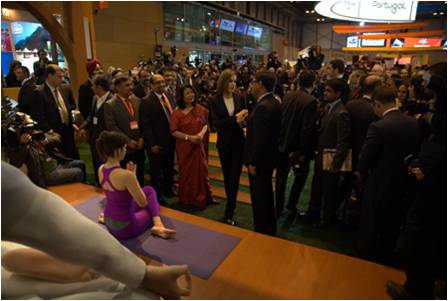 The Queen from Spain surrounded by journalists. Picture credit: www.embassyindia.es
The Queen from Spain surrounded by journalists. Picture credit: www.embassyindia.es
We darted past the Queen of Spain towards our first meeting trying to dodge the hundreds of cameras pointing at her. We were 3 minutes late to our first meeting (out of the 25 arranged for the first two days) and time is exactly what you don’t have in FITUR. Everything is moving at full steam. Even though, we were able to meet old friends and actual customers which is greatly appreciated.
Apart of the fact that FITUR is just the perfect place to meet new potential customers or to find the professionals that can add value to your company in the tourism industry; I would personally highlight a few points that I find interesting:
- There is a very strong interest in health tourism; especially in China. A high percentage of the companies we met in FITUR were somehow related to health tourism and they were all very keen to expand their business to attract Chinese tourists or even to create a base in China. If you think about it, it is quite logical; In terms of population, around 120 million men and women are older than 65 years and the West might be able to get better response to certain illnesses and there is also the trust issue behind it: they trust foreign things better than the domestic ones and here is the huge opportunity knocking at the door

- Asia Pacific was very present in FITUR sharing pavilion with Europe
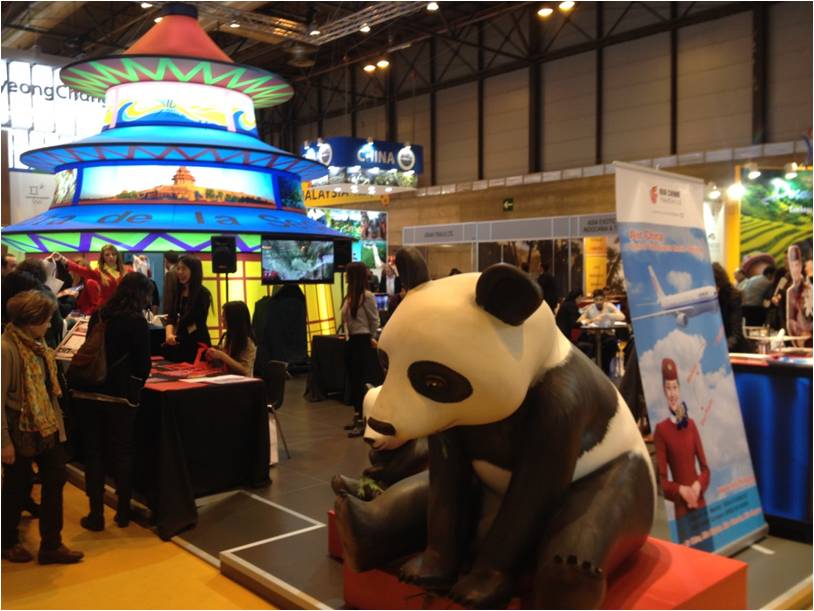 Chinese stand was always full
Chinese stand was always full
- The internationalization of smart tourist destinations and the importance of promoting innovation it is key to attract Chinese tourists and Digital will be the future to get there
- Despite being a booming sector among users, collaborative tourism had no place in FITUR. The term collaborative tourism, also known as “P2P tourism” (peer to peer, person to person) refers to a new tourist industry based on contacting individuals who offer their services to visitors who are interested in them. Despite being a new way of travel that has not been very well received by some of the traditional industry rulers, tourists are increasingly using it. But only one exhibitor was present at the fair. In China, P2P rentals for Chinese outbound tourism sector are increasing at an amazing pace. The question that I would raise in this post is the following one…
Is there a political reason behind all this, and if so, how do people intend to resolve this?
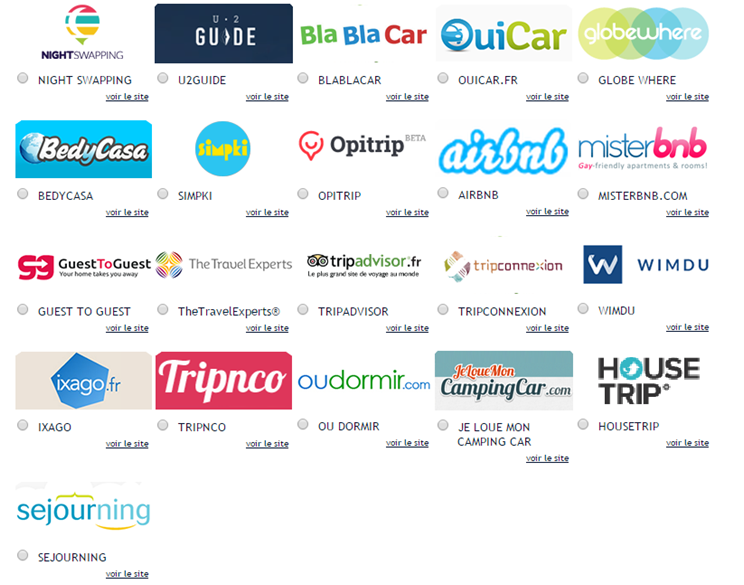
P2P tourism companies. Picture Credit: blog.nightswapping.com
Anyway, we were extremely happy to assist, as we did last year, and for sure we are planning to be there next year. So don’t hesitate to join us and meet for a coffee talking about the future of Tourism in China. That is what we like to do!
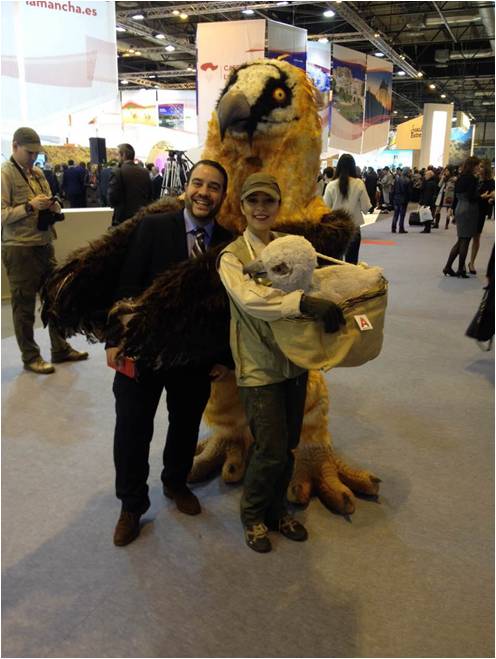
Crazy bird with Víctor Barrio
2 Open will be in the Madrid Tourism Trade Show FITUR 2016 jan 20-24
Chinese tourism is increasing very fast lasts years as well as their economy. In the last 15 years has spread from 8 million to more than 100 million in 2014. It is a record according to the Chinese National Tourism Administration and is supposed that this number will keep growing. So, this emerging market has a high growing potential for the next years.
The percentage of Chinese households with high incomes has tripled the last few years according to Euromonitor. That makes affordable for them to travel abroad. Since 2012 China occupies the first position in people traveling outside its borders.
Respecting to the Spanish and European market is expected to reach also a great growth comparing with the previous years. Specifically in Spain, according to Turespaña it is going to grow between 10% and 15% caused by the improvement in flight connections and the agility with the visa formalities. The Chinese tourists are those who most spend, with an average of 250 euros per day comparing to the 110 euros per day coming from other profiles.
That is why there is a huge potential market for the companies assisting to the Fitur.
We offer digital marketing services in China. We operate in three main areas which are the digital strategy, digital marketing and web/e-Commerce. In all cases we help our customers to sell more through the digital environment and in some cases, we become their marketing department in China.
We will be in Fitur fair in Madrid. If you are interested in knowing more please contact us to set an appointment in the following email addresses carlos@2open.biz, victor@2open.biz or filling our contact form.
2 Open visits ANUGA
Last week 2 Open was in ANUGA, the world´s leading food fair for the retail trade and the food service and catering market. It was a busy week, where 2 Open was in contact with some interesting companies that were really interested in discovering China´s digital possibilities. Meeting not only Spanish companies like Calvo Group, Campofrío, Castillo de Canena, Jorge Group… but also Mexican and Chilean companies too, like La Morena and Sugal.
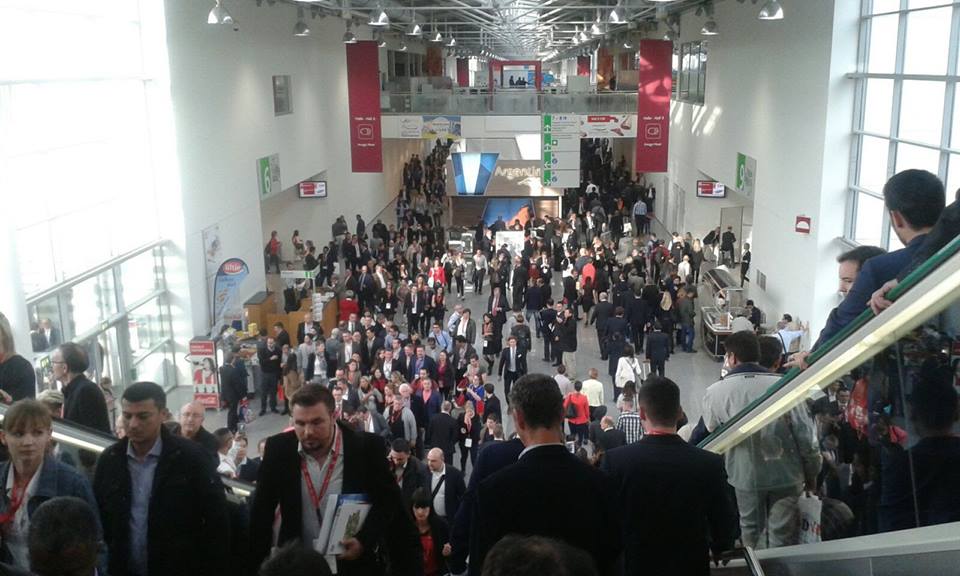
ANUGA 2015
After a record number of exhibitors, Anuga 2015 also increased its attendance figures. Around 160,000 trade visitors from 192 countries attended Anuga in Cologne from 10 to 14 October 2015. “Anuga is unparalleled as a business and information platform for the global food industry,” said Gerald Böse, President and Chief Executive Officer of Koelnmesse. “Once again this year, it has clearly underlined its position as the leading international trade fair.” Anuga 2015 presented over 7,000 exhibitors from 108 countries. The share of foreign exhibitors was 89 percent and the share of foreign visitors was 68 percent. The exhibitors were particularly impressed by the quality of the visitors. Decisionmaking buyers from the trade and from the food service sector ensured that the trade fair took a dynamic course. The 33rd Anuga was opened on Saturday, 10 October 2015 by Christian Schmidt, the German Minister for Food and Agriculture, and Evangelos Apostolou, the Greek Minister for Agricultural Development and Food. Greece was the partner country of Anuga 2015 and the country was successfully represented by over 200 Greek exhibitors, who presented the entire variety and quality of Greece’s food industry. The international significance of Anuga for the food sector was also an occasion for numerous high-ranking political delegations from Germany and abroad to visit Anuga.
Somer more figures
7,063 companies from 108 countries took part in Anuga 2015 on exhibition space covering 284,000 m². These included 769 exhibitors from Germany and 6,294 exhibitors from abroad. The share of foreign exhibitors was 89 percent. Around 160,000 trade visitors from 192 countries attended Anuga 2015, the foreign share was 68 percent.
Digital Marketing in China in FEDETO (Toledo – Spain)
On October 8 we will be in Toledo (Spain) speaking about Digital Marketing in China, within the day of International e-Commerce organized by FEDETO (Business Federation of Toledo). During the event we will talk about our experience with Spanish companies selling online in China and we will try to give an overview of the features of digital marketing in the chinese market.
If you are interested in going to the event please write an email to areainternacional@fedeto.es.
SEMINAR: E – COMMERCE IN CHINA:
SELLING ONLINE IN THE LARGEST MARKET IN THE WORLD
October 8, 2015 – FEDETO (Paseo Recaredo, 1; Toledo, Spain)
11:00 am Reception of participants.
OPENING
11:10 h. Mr. Cesar Garcia Paniagua.
President of International Relations FEDETO – CEOE – CEPYME – Toledo.
11:15 h Ecosystem Electronic Commerce in China.
– Historical overview of e-commerce in China
– Tips to make a web accessible, fast and attractive to the Chinese public.
– Hosting, web architecture, design and content for
a site is accessible to Chinese users.
– Differences between the website in Chinese and website in China.
– The Chinese language and cultural barriers.
– Online Promotion in China
– Most used software by chinese customers
– Major e-commerce platforms Electronic
– M – Commerce.
– Legal Aspects of e-commerce in China.
Mr. Luis Galan, CEO 2Open.
12:15 Case Studies.
12:45 Colloquium.
13:00 CLOSING
Mr. Cesar Garcia Paniagua
President of International Relations FEDETO – CEOE – CEPYME – Toledo.
What’s the Best Project Management Tool for Your Company in China?
Sometimes it’s hard to manage a small company. Unlike a big corporation, with an already established pyramid, everything goes by the rules, departments report to the CEO, and employees report to department heads. In a small company, most of the times, CEO has to multi task to act as a CEO but also as an employee, backstage, or human resource. It’s very important for small companies to function and keep things moving, therefore a tool for project management is significantly important.
At 2 Open, we have being relying on Basecamp for project management. Most people are familiar with Basecamp, it’s a simply management tool to help companies organize and keep track of projects. But is Basecamp working well in China? Can we have better solutions?
When it comes to project management, what’s important to you? I guess everyone will have different answers, for 2 Open, efficiency and expenses are two big factors to consider. We have searched many possible solutions but most of them can’t meet our requirement. Here is a list of different management tools, and the first biggest reason we think is not ideal. You can see the biggest problems we encounter are price and speed.
(Click for larger image)
Since 2 Open is an international company, we need to ensure that our management tool also works well outside of China. As you know, this really depends on the host. For example, if a company is based in the United State, the best option for them is to find a tool with USA host in order to ensure the speed and delivery. But 2 Open has office in China and Spain, it’s hard to find a service that works well in both place.
Basecamp is a great tool, but it’s slow in China, we need to use VPN in order to work efficiency around Basecamp. I guess with international companies, it’s common to use VPN, because we are dealing with multiple countries at once. So if everything is working well with Basecamp, and we can solve speed problem with VPN, is it worth switching to another management website?
First of all, Basecamp has all the functions we need, viewing different projects, look up progress of each project and each employee, and the price is relative fair; there are couple options you can choose from, starting from $20 per month, but they charger by project rather than user, this is specially important for small companies, since our employee rate is increasing or decrease more dramatic than large corporations.
(Click for larger image)
If the company is Chinese employee based, tower.im is a great alternative, its very similar to Basecamp, but the host is in China. But 2 Open has foreign employees, and tower.im doesn’t have English version. If a company cares about functions, or growing into a bigger company, then maybe huddle.net is better solution. Of course they are more expensive, but in order to manage the entire worker, it’s necessary.
Since 2 Open is using Zoho mail, Zoho also has project management tools, is called Zoho Projects. It’s similar to many other management tools. It’s hard to tell whether Zoho Projects is a suitable solution for 2 Open. We have to try it out, test whether they are compatible with our company structure. Other than the obvious cost in a small company, time efficiency and time management is also an expense. Is it worse to invest the time into Zoho Projects, or is it better to use these time on somewhere else.
(Click for larger image)
With the unique structure of 2 Open, or if you are a company that’s similar to 2 Open, Basecamp is one of the best solutions for us, price is fair compare to the functions they have, a clear theme with English version. If you haven’t start Basecamp, Zoho Projects is another great option, price is similar to Basecamp with almost the same function, it’s also available in English but with a Chinese host.


